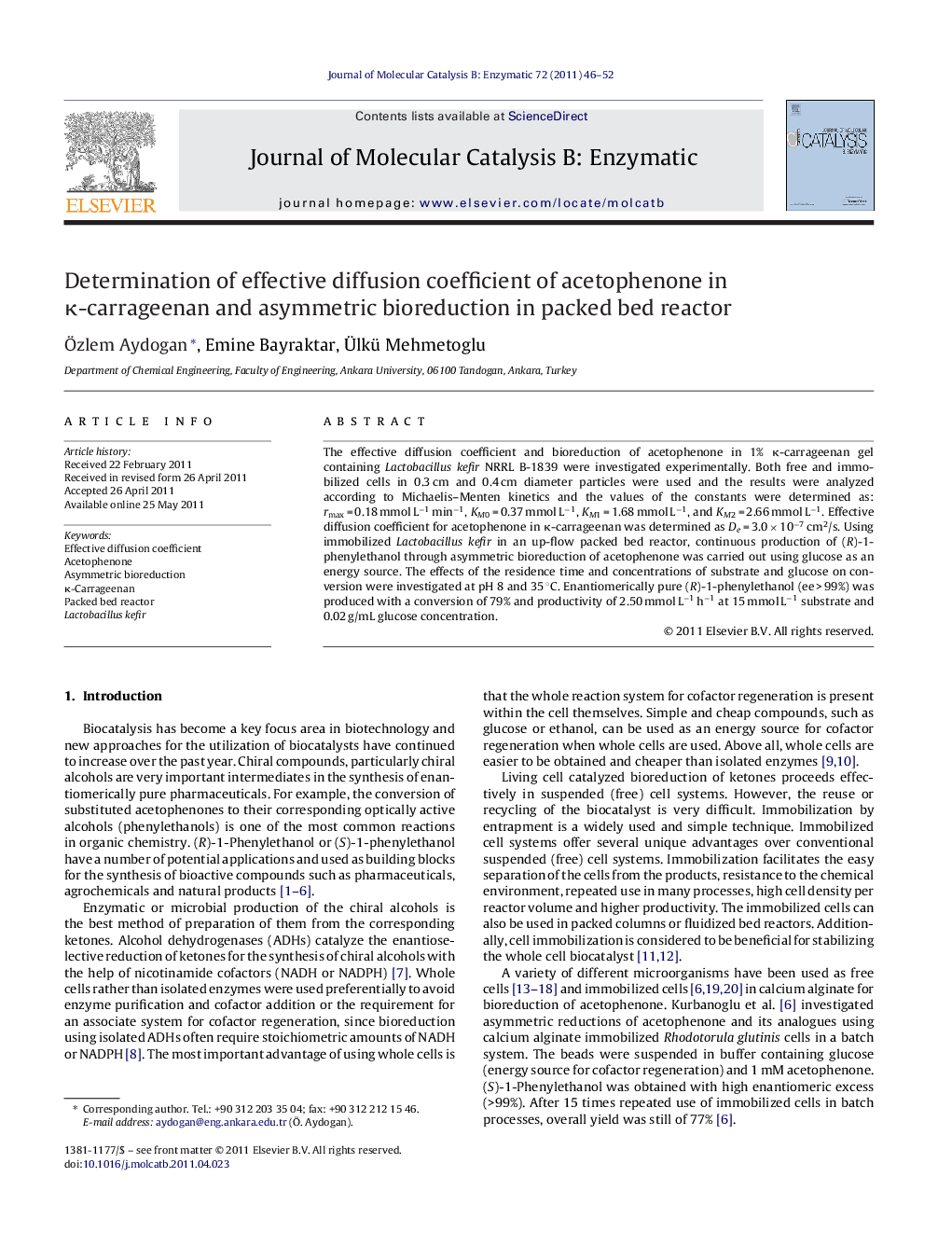| Article ID | Journal | Published Year | Pages | File Type |
|---|---|---|---|---|
| 70236 | Journal of Molecular Catalysis B: Enzymatic | 2011 | 7 Pages |
The effective diffusion coefficient and bioreduction of acetophenone in 1% κ-carrageenan gel containing Lactobacillus kefir NRRL B-1839 were investigated experimentally. Both free and immobilized cells in 0.3 cm and 0.4 cm diameter particles were used and the results were analyzed according to Michaelis–Menten kinetics and the values of the constants were determined as: rmax = 0.18 mmol L−1 min−1, KM0 = 0.37 mmol L−1, KM1 = 1.68 mmol L−1, and KM2 = 2.66 mmol L−1. Effective diffusion coefficient for acetophenone in κ-carrageenan was determined as De = 3.0 × 10−7 cm2/s. Using immobilized Lactobacillus kefir in an up-flow packed bed reactor, continuous production of (R)-1-phenylethanol through asymmetric bioreduction of acetophenone was carried out using glucose as an energy source. The effects of the residence time and concentrations of substrate and glucose on conversion were investigated at pH 8 and 35 °C. Enantiomerically pure (R)-1-phenylethanol (ee > 99%) was produced with a conversion of 79% and productivity of 2.50 mmol L−1 h−1 at 15 mmol L−1 substrate and 0.02 g/mL glucose concentration.
Graphical abstractFigure optionsDownload full-size imageDownload as PowerPoint slideHighlights► Internal diffusion limitation can not be ignored when immobilized biocatalyts are used. ► Also, effectiveness factor and diffusion of substrate are of primary importance in the design of bioreactors. ► In order to express the effect of internal diffusion limitation quantitatively, firstly, effectiveness factor and then effective diffusion coefficient (De) of acetophenone in κ- carrageenan was determined in this study.
